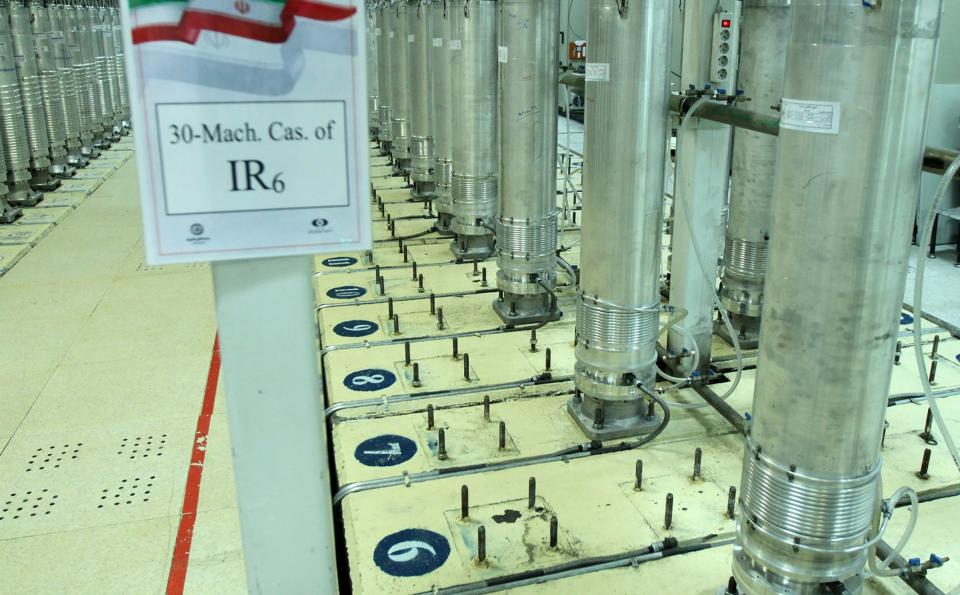Iran to begin enriching uranium to highest ever level of 60%

Centrifuge machines in the Natanz uranium enrichment facility in central Iran
(AP)Iran is to inform international inspectors that it will begin enriching uranium to 60 per cent purity, higher than it has ever produced, state media has said, in what could be the first great foreign policy challenge for the US administration of President Joe Biden.
Abbas Araqchi, the deputy foreign minister for political affairs and Iran’s senior nuclear negotiator “has divulged news of the start of 60 per cent uranium enrichment,” reported the official Islamic Republic News Agency.
The move comes in response to the attack on Sunday on Iran’s main enrichment facility in Natanz.
Israel is believed to be behind the attack, which damaged a number of the 5,000 centrifuges Iran is using to produce enriched uranium - fissile material which can power an electricity plant or, when purified to high levels, provide fuel for an atomic bomb. Iran said it would commence 60 per cent uranium enrichment “as soon as this evening” at the same Ahmadi Roushan Enrichment Facility in Natanz that was attacked.
The increase in the purity of Iran’s production of nuclear material would complicate talks on reviving the nuclear deal which are set to resume on Wednesday.
The talks, which have not yet directly involved US officials, are aimed at finding a way to forge a replacement to the Joint Comprehensive Plan of Action, a deal limiting Tehran’s nuclear capabilities that was brokered by the administration of President Barack Obama as well as China, France, Russia, Germany, the EU and the UK.
Any agreement would see the US scale back sanctions imposed by the former US president Donald Trump in return for limits on Iran’s nuclear activities. The White House has insisted it had nothing to do with the Natanz attack, but must now grapple with its diplomatic fallout.
“We believe that this round of negotiations is the time for the US to present a list. I hope that I can go back to Tehran with the list of sanctions that will be lifted,” Mr Araghchi said in Vienna, where the talks have been taking place.
“Otherwise, I don’t believe we can continue like this. Otherwise, I believe this would be a waste of time.”
He added that informal talks would start on Tuesday night, with a formal session beginning on Thursday.
Iran's supreme leader Ayatollah Ali Khamenei had threatened to expand its programme to enriching uranium with 60 per cent purity in February if required.
"We are determined to develop our nuclear capabilities in line with the needs of the country," Ayatollah Khamenei said then, according to a transcript of his speech published by his website.
"For this reason, Iran's enrichment will not be limited to 20 per cent, and we will take whatever action is necessary for the country."
Raw uranium must be enriched to a purity of 90 per cent of its fissile uranium-235 isotopes in order to be used for a modern atomic weapon. But 60 per cent purity is enough to produce a so-called dirty bomb which can disperse radioactive material without causing a thermonuclear explosion.
Iranian officials said the 60 per cent enriched uranium would be used to produce molybdenum, which has medical applications.
Iran had previously said it could use uranium enriched up to 60 per cent for nuclear-powered ships. However, the Islamic Republic currently has no such ships in its naval forces.
Read More
Lockdown ease: London pub welcomes customers outdoors
Egypt seizes Ever Given over owner’s ‘refusal to pay compensation’

 Yahoo Finance
Yahoo Finance 